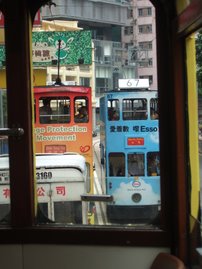POINT OF VIEW/ Koken Tsuchiya:Open up stored records on 'comfort women'
04/16/2007
The government and the Liberal Democratic Party have overreacted to the draft resolution introduced in January to the U.S. House of Representatives that demands Japan formally acknowledge and apologize for forcing women to provide sex for Japanese soldiers during the wars. Similar resolutions have already been adopted by the parliaments of South Korea and Taiwan, so the move is nothing new.
Japan has been strongly urged on repeated occasions to resolve the "comfort women" issue by such international organizations as the United Nations Human Rights Council, the U.N. Committee on Economic, Social and Cultural Rights and the International Labor Organization.
Those facts shows that not only countries that suffered under the Japanese military think Japan has yet to settle the "comfort women" problem, but international organizations that generally maintain neutrality also think so.
Prime Minister Shinzo Abe and Foreign Minister Taro Aso insist "there was no coercion in the narrow sense" and there are "factual errors" in this view of history.
But their arguments do not seem well-grounded. The governments of the Netherlands and South Korea, which both suffered damage from Japan, and these international organizations have conducted their own investigations, including interviews with former comfort women. They have recognized the pain that was inflicted on these women.
On a number of occasions, I have also met and listened to the stories of victims from countries that suffered damage. From what I learned, particularly in countries occupied by Japan such as China and the Philippines, in many cases, women were kidnapped, attacked or confined directly by the military without any involvement by private operators.
Japanese courts have also found evidence of and acknowledged the fact of coercion. The Japan Federation of Bar Associations dispatched members to the related countries to look into damage reports, and it publicized the results. Based on its findings, the federation has four times urged the prime minister to make a formal apology and extend compensation to individuals.
I agree with the theory that the current confusion is caused by the ambiguity of the government's survey released in 1993 and in the wording of the statement issued by then-Chief Cabinet Secretary Yohei Kono.
Meanwhile, there is little evidence that the government has seriously pursued its investigation since 1993. It has been passive at best, not even bothering to interview the surviving comfort women, except for a few in South Korea. Some naysayers have even taken advantage of the government's inadequate response to this issue to try to discredit the Kono statement.
The government must take the blame for failing to take proper measures. It must look further into the situation and hear from the victims to reveal the true situation of "comfort women" and wartime coercion.
Successive prime ministers have offered "apologies." But neither prime ministers nor foreign ministers have ever personally met with these aging victims.
Listening to these leaders' recent statements in the Diet, I got the impression they have not bothered to read the reports released by the Dutch government after 1993, nor the moving account of "comfort women" on the Indonesian island of Buru that was written more than 30 years ago by prominent Indonesian writer Pramoedya Ananta Toer (1925-2006).
Speculation that is not based on a thorough investigation lacks persuasive power.
It is illogical to argue that just because no official documents can be found that record the coercion, it therefore never happened. While many documents were burned when Japan lost the war, a large number of documents still reside silently in storage rooms at ministries, awaiting a full investigation to reveal the truth.
A proposal to set up a special bureau within the National Diet Library to examine such documents, and bills aimed at settling the "comfort women" problem have been repeatedly submitted to the Diet. Before trying to block the U.S. Congress from adopting its resolution, the Diet should deliberate on these bills.
Some may fear the resolution could cause a rift in Japan-U.S. relations. But denying history is much more detrimental to mutual trust between the two countries.
Mike Honda, the U.S. House of Representatives member who submitted the resolution, insists that only after Japan acknowledges its responsibility can it make peace with its victims and pave the way to stability in the Asia-Pacific region.
The Asian Peace and People's Fund for Women (Asian Women's Fund), which dissolved at the end of March, was regarded by victims and victimized countries as a way for the government to evade responsibility. It is time we reconsider what is in Japan's true national interest.
* * *
The author is a former president of the Japan Federation of Bar Associations.(IHT/Asahi: April 16,2007)

No comments:
Post a Comment